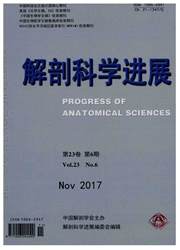

 中文摘要:
中文摘要:
胞外体(exosome,EO)是真核细胞在正常和病理状态下分泌的一种具有双层膜结构的微小囊泡,包含有蛋白、脂质、RNA及多种其他生物大分子。由于其在细胞之间的信号交流、肿瘤免疫微环境调节方面的作用显著而受到广泛关注。肿瘤细胞分泌EO的组成和数量与正常细胞存在差异,因此其在肿瘤形成和进展、免疫状态调节中的功能也具有多样性。而且,EO可能在肿瘤预测、分期、诊断和治疗中具有极大的潜在价值。本文主要就EO的分泌和捕获过程、主要组成成分和功能以及肿瘤相关的EO在肿瘤发展、免疫调节和可能的诊治策略中的最新研究做一简要综述。
 英文摘要:
英文摘要:
Exosome(EO) is a type of tiny vesicles with bilayer structure, comprises of proteins, lipids, RNA and a variety of other biological macromolecules, secreted by eukaryotic cells under normal and pathological conditions. EO is widespreadly concerned because of its role in c:ross-talk of cells and in regulating the immune microenvironment of tumors. There are differences in composition and amount of EO secreted by tumor ceils and normal cells. Thus the function of EO is diverse in tumor progression and development as well as in the regulation of tumor immune state. Moreover, EO may have great potential value in tumor predicting, staging, diagnosis and treatment. This review focuses on EO secretion and capture process, major components, and the new studies on the role of tumor-associated EO in tumor development, immune regulation and possible diagnosis and therapeutic strategies.
 同期刊论文项目
同期刊论文项目
 同项目期刊论文
同项目期刊论文
 期刊信息
期刊信息
